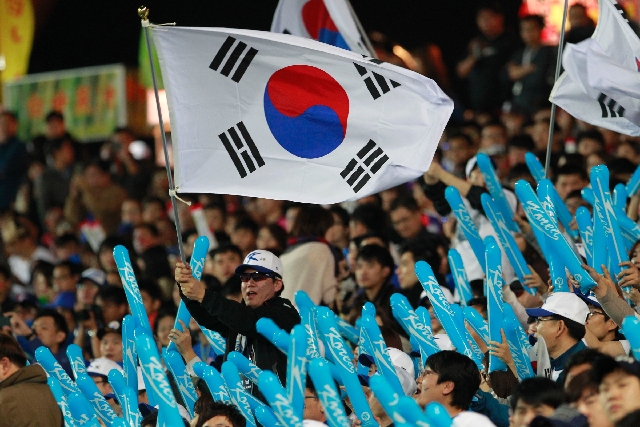World Baseball Classic flawed in concept, timing

I’ll admit that watching baseball late at night from Taiwan interested me, if only for an inning or so. Not so much for the product on the field, which was minor league at best, but for the fans banging their thundersticks together in synchronized precision.
At least the home team had fans. First-round World Baseball Classic games that didn’t feature the host country in both Taiwan and Japan drew a few hundred people at best, and even they didn’t seem terribly interested in the action.
That may change this weekend, with the tournament now moving to the United States and Puerto Rico. At the last WBC in 2009, Japan and Korea played before a packed house in the final at Dodger Stadium, and everyone agreed it was a fine night for baseball.
But despite all of commissioner Bud Selig’s best intentions, the WBC isn’t any better in its third incarnation than it was in the first two. The timing is terrible, the pitch count limits are a joke unless you play for the Washington Nationals, and the schedule is manipulated to give the best chance possible to the United States.
And — at least when it comes to the U.S. squad — a lot of the best players aren’t playing.
No Clayton Kershaw, no Bryce Harper. Mike Trout and Josh Hamilton are busy elsewhere. Justin Verlander had other plans.
Blame the players for some of it. The WBC doesn’t mean enough to them to change their spring training routine — not when there are millions of dollars in potential contracts on the line.
Blame major league teams, too. They may not be discouraging stars from playing, but there’s an inferred message that loyalty to the team that pays you outweighs any loyalty to country in the WBC.
There are still plenty of good players on the U.S. team, of course. Ryan Braun is one, and if anyone needs a feel good story about leading his country to victory, it’s the Milwaukee slugger who tested positive for testosterone in 2011 (his suspension was later overturned) and was linked this year to a Miami clinic that allegedly supplied performance-enhancing drugs to athletes.
David Wright of the Mets is also playing, along with 15 pitchers, a number necessitated by pitch counts that begin at 65 for starters in opening- round games. Protecting arms is paramount in the WBC, even if it means some starters may never get past the third inning.
The U.S. opens play Friday in Arizona against Mexico, followed by weekend games against Italy and Canada. If all goes according to plan, the squad will head to Miami and then to San Francisco for the semifinals and finals.
Before he strained a wrist Tuesday and was taken off the roster, Yankees first baseman Mark Teixeira called the competition an exhibition, and that’s how most U.S. players trying to get ready for the season seem to regard it.
“It doesn’t mean we don’t want to win it,” Teixeira quickly added.
Selig himself was frustrated by the lackadaisical approach the U.S. team took in 2009, saying after it was eliminated that players had to “push up the intensity.” The U.S. has finished no better than fourth in the two tournaments.
They take it more seriously in other countries like Cuba and Japan, which won both previous World Baseball Classics. Not hard to figure out why because, with baseball kicked out of the Olympics, it’s their only real chance on the world stage.
For the WBC to be meaningful in the country where baseball grew up, some changes are in order. The first would be to move the games out of spring training and into a time slot better suited for players and fans.
It won’t happen in the middle of the season, because baseball owners would never stand for losing revenue. But it could be played at warm weather sites in November just after the World Series ends, and the finals could be played somewhere other than the United States.
Judging from the lukewarm response by most U.S. players, baseball also needs to find an incentive to make them play. As it stands now, they have more reasons to demur than to sign up for the red, white and blue.
Finally, the best games should be played on something other than the MLB Network. Make them easier for the casual viewer to find, and there might be more interest.
Ultimately, though, the WBC is a flawed concept, no matter how well intentioned Selig and the other founders of the tournament were. It doesn’t have the cachet of the Olympics, and doesn’t get the respect of many of the players. There’s no real good time to hold it, and even die-hard fans greet it with little more than a yawn.
Maybe the best thing to do is scrap it and use the time and energy to lobby for world baseball to return where it belongs — in the Olympics.
Tim Dahlberg is a Las Vegas-based national sports columnist for The Associated Press. Write to him at tdahlberg@ap.org or http://twitter.com/timdahlberg.